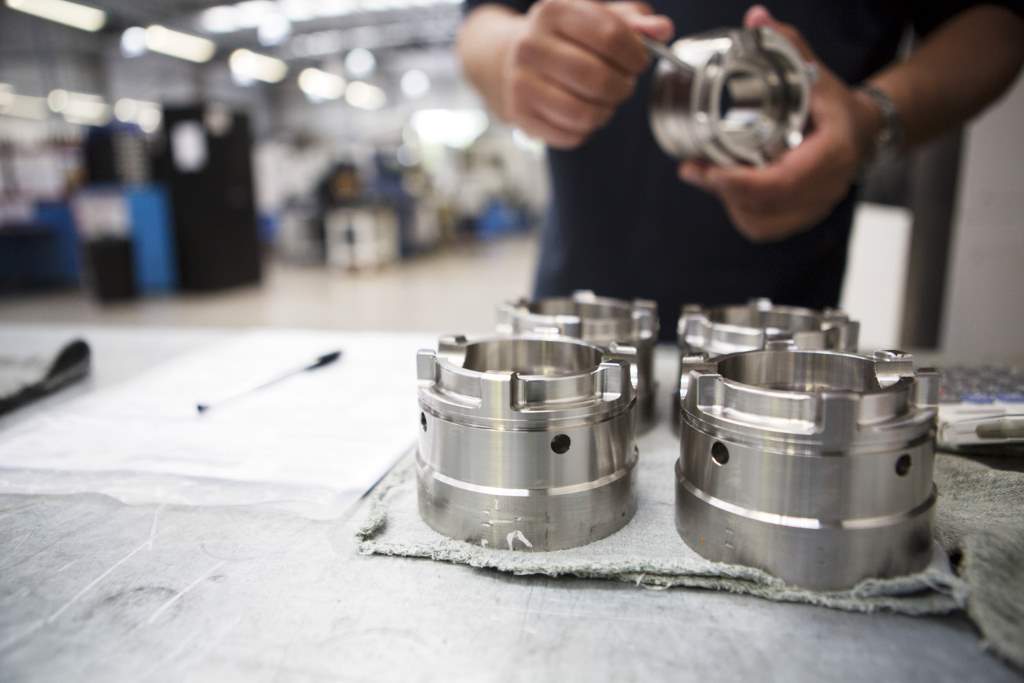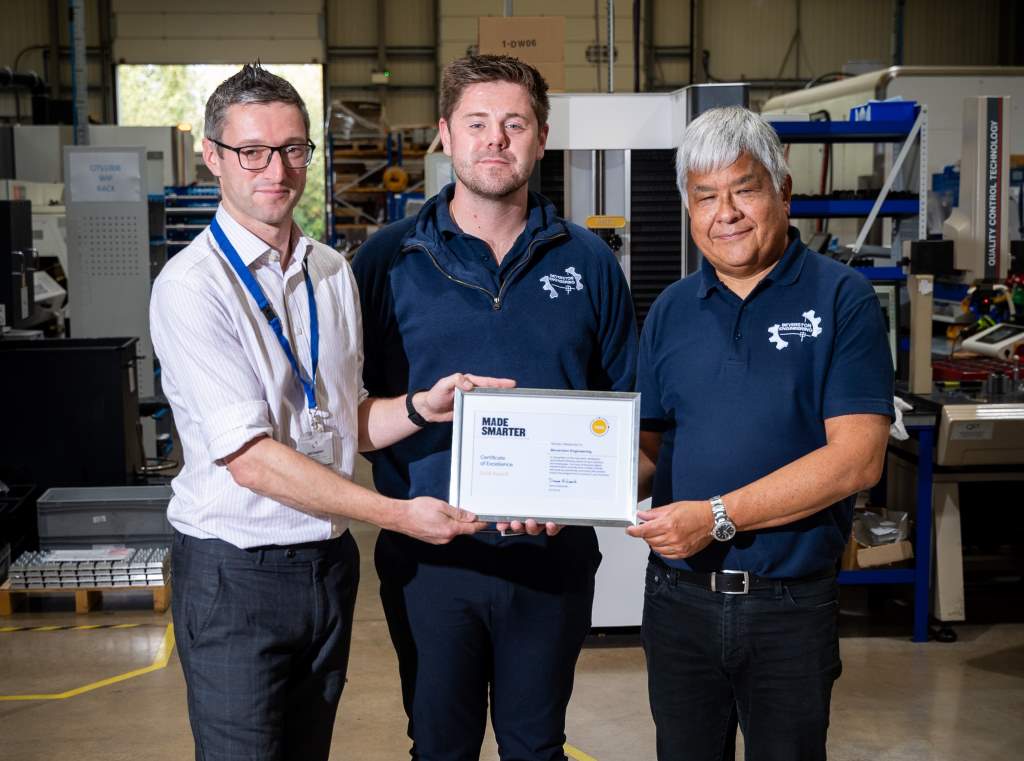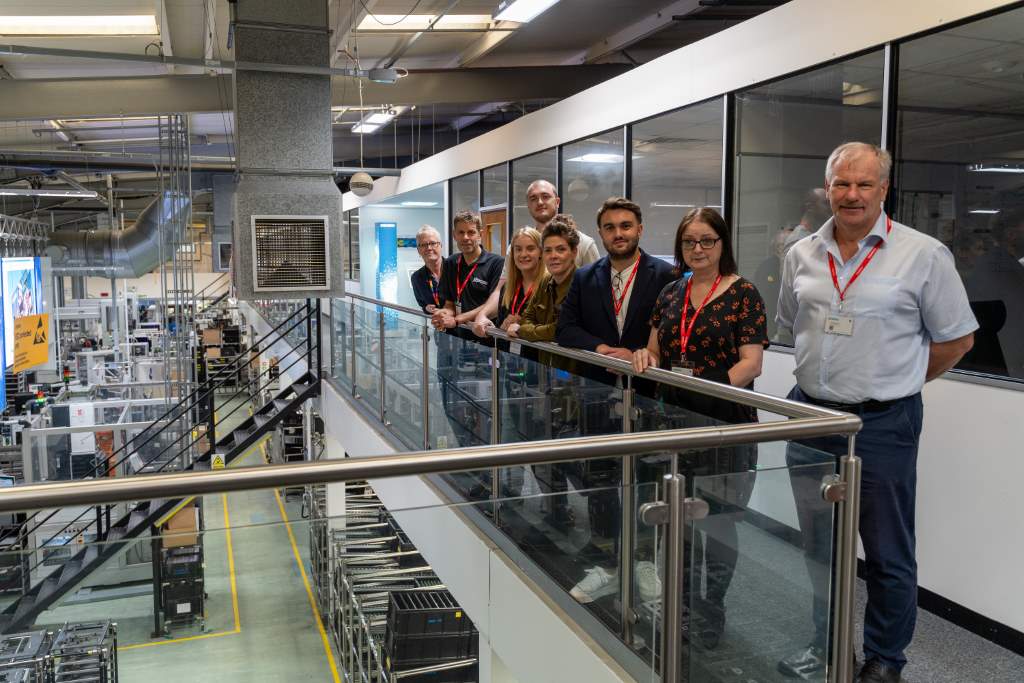Nurturing the path to intelligent manufacturing
Made Smarter is a government backed programme to help manufacturing SMEs adopt the latest digital tools and innovations and maximise their benefits. Ed Hill visited Siemens’ factory in Congleton, Cheshire to hear more about its uptake and success in the North West.
Since I first started writing about precision engineering and manufacturing more than a decade ago, terms like Industry 4.0, Smart Factory, the Industrial Internet of Things and the universal introduction of digitalisation have been touted as the answer to many of the UK’s industrial woes, but in truth all these labels can seem a bit nebulous.
If you asked me to describe them, I would say some rather ill-defined concepts like: machine and software interconnectivity, system integration, data optimisation, automation, additive manufacturing and AI, all bundled together in one great jumble of manufacturing innovations, that can be tough to fathom.
To the uninitiated it can all seem a bit of a minefield, and for smaller manufacturing businesses having to deal with the day-to-day tasks of budgeting, quoting for contracts, taking and processing orders onto the shopfloor and out of the factory door, difficult to dedicate time and resources to.
This is where the Made Smarter adoption programme, currently being implemented in several regions around the UK, is intended to help SMEs to take the first steps on the journey to digitalisation and decarbonisation.
A government funded programme, Made Smarter’s goal is to help companies make the transition and reap the benefits of digitalised manufacturing. It is also supported by bodies including local enterprise partnerships and some of the UK’s biggest manufacturing companies such as BAE Systems, Siemens, JLR, Renishaw, Rolls-Royce, ABB and GSK, who have representatives both on national and regional management boards.
The first three-year adoption programme was launched in the North West in 2019. So far 2,500 manufacturers from across the region have engaged with the programme with hundreds going on to receive support through grant funding, impartial technology advice and leadership and skills training to help transform their businesses. It is forecast that the scheme so far has created more than 1,550 new jobs and will boost the region’s economy by £242 million.
To coincide with National Manufacturing Day earlier this year, Made Smarter held an event to highlight the successes of the North West programme, at Siemens’ drives and controls manufacturing plant in Congleton, Chesire.
Making the connection
One precision engineering company that has benefitted from Made Smarter is Knowsley-based Beverston Engineering. It has invested £173,000 in sensor technology and software to connect 20 CNC machines across its factory to provide real-time visibility of its manufacturing.
As a result, the specialist component manufacturer for aerospace, oil and gas, and pharmaceutical industries, has increased productivity by 20%, increased profitability, won new business, and reduced its carbon emissions by 10%. The programme has also helped Beverston recruit and train a new generation of digital engineers that will accelerate data-led decision making.
Rod Wah, managing director of Beverston, believes the smart factory proves what can be achieved with this kind of targeted support: “Made Smarter has had such a phenomenal impact on the business,” he says. “I’m recruiting the next generation of engineers, implementing new technology which enables unmanned machining, formulating plans for a £2 million investment, and we have a healthy order book.”
Beverston began working with Made Smarter in 2019 to develop a digital adoption roadmap. A first project laid the foundations for the smart factory by enabling connectivity and upgrading IT infrastructure with a dedicated machine data server. The firm also installed sensors to monitor its machines and factory assets.
The company then created a ‘productivity control room’ – a bank of 18 big screens in the centre of its factory displaying real-time factory analytics, such as machine downtime events, availability, and performance metrics to the workforce.
A second project in 2022 created a platform which integrated all 20 machines and operators with its ERP and third-party systems, giving the subcontractor further immediate insight and analytics, enabling the business to react quickly to challenges and opportunities.

The investment came at a tough time for the business, that like many was dealing with the economic shocks of the pandemic, supply chain challenges and increased energy costs.
“The last three years were incredibly challenging, but we remained committed to our long-term vision for digital transformation,” Mr Wah explains. “Our customers like Rolls-Royce and Collins Aerospace have been blown away by what we’ve achieved. Our commitment to the vision has helped us win more business and gives us a great opportunity.”
Made Smarter also supported Beverston to develop new talent. Oliver Miller, an aerospace engineering graduate who began working with the business via Made Smarter’s digital technology internship programme, is now an Industry 4.0 project manager employed for digital transformation projects. He has also just completed the Made Smarter Leading Digital Transformation programme.
Aid on offer
So what sort of support is available for SMEs? Firstly, impartial advice from a digital manufacturing technology specialist; workshops on digital transformation, resulting in a digital roadmap for each business; advice on preparing staff for the transformation to new digitalised manufacturing; a leadership programme to train and identify members of staff who can drive the introduction of new technologies and practices, and finally match funded grants up to £20,000 for investment into new capital equipment or systems.
Once a company has registered for Made Smarter, they are allocated an adviser who will guide them through the programme. Then an assessment is carried out, identifying where potential digital technologies and practices could bring tangible benefits. From this point they can choose which recommendations they want to adopt and participate in elements such as the workshops and leadership programmes to progress their digitalisation journey.
Made Smarter is aimed at a broad spectrum of manufacturing businesses. At the event in Congleton there were companies involved in food manufacturing, cleaning products, and sensor technology as well as engineering. It has even worked with an animation company that introduced the use of 3D metal printing to make puppets seen in films such as Guillermo del Toro's Oscar-winning Pinocchio.

“It was an intentional decision not to target a particular sector, but with that diversity, the companies involved still find there is value in working together,” comments Donna Edwards, Made Smarter’s North West adoption programme director. “Manufacturers talk to manufacturers candidly about their experiences of the scheme and its benefits and that helps build a community. It’s actually about large and small companies working together because at some point they will likely be part of another bigger company’s supply chain.”
Ms Edwards is keen to emphasise that one of the reasons for the pilot’s success is the long-term commitment Made Smarter makes to the companies involved.
“When companies introduce changes or equipment and embed those into the running of the business it’s important that they know they can come back to us for the next step of the journey and the one after that,” she says. “We then hope to get to a point where companies can support themselves on the journey.”
Big industry commitment
Paul McLaren, production director at BAE Systems and chair of Made Smarter North West’s steering group, discussed why larger engineering companies like his were committed to the scheme.
“It’s a catalyst for positive change in manufacturing,” he says. “More so than ever, industry recognises the importance of every tier of the supply chain taking up the benefits of digitalisation and programmes like Made Smarter help SMEs to be more resilient and increase their capability and competitiveness, which ultimately leads to a stronger value chain.

“With its flexibility, Made Smarter works well across all types of companies with their different demands and it is really effective at highlighting the opportunities and benefits that are available. That is why BAE Systems has invested in this programme. We need to collaborate effectively across supply chains of increasing complexity and the more integrated and advanced companies can be then the better it is for UK manufacturing.”
With the lack of a long-term UK industrial strategy, initiatives like Made Smarter demonstrate what can be achieved when the Government provides properly targeted help to UK manufacturing and at a time when a revolution in industry is occurring and challenges like Net Zero are on the horizon. Encouragingly, the Government must have noted its success in regions such as the North West and has decided to expand it nationally.
“Over the last four years we have worked tirelessly to help North West makers start their digital journey by providing them with specialist advice to help them select the right approach, level of investment and tools for their business,” comments Ms Edwards. “The programme has proven the value technology and digital skills can bring to the manufacturing sector.
“While we await further details on the funding package, the commitment to a national roll-out is a huge vote of confidence in the contribution SMEs make to UK manufacturing. It’s been fantastic today to bring together so many of the programme's stakeholders to say thank you and celebrate our achievements. However, we still have plenty more to do to increase the adoption of digital technologies and improve productivity.”
Made Smarter
www.madesmarter.uk














